- Home
- David Lubar
Beware the Ninja Weenies
Beware the Ninja Weenies Read online
The author and publisher have provided this e-book to you without Digital Rights Management software (DRM) applied so that you can enjoy reading it on your personal devices. This e-book is for your personal use only. You may not print or post this e-book, or make this e-book publicly available in any way. You may not copy, reproduce or upload this e-book, other than to read it on one of your personal devices.
Copyright infringement is against the law. If you believe the copy of this e-book you are reading infringes on the author’s copyright, please notify the publisher at: us.macmillanusa.com/piracy.
For Susan Chang, editor, friend, and advocate. Thanks for working so hard to make me look good.
CONTENTS
Title
Dedication
Playing Solo
Gorgonzola
Blowout
Christmas Carol
Thresholds of Pain
Smart Food
The Art of Alchemy
Magnifying the Tragedy
Sweet Dreams
Chipmunks off the Old Block
Stuck Up
The Snow Globe
The Iron Wizard Goes A-Courtin’
Fortunate Accidents
Big Bang
Laps
Bedbugs
The Valley of Lost Treasures
Catfishing in America
Poser
Beware the Ninja Weenies
Little Bread Riding Hood
Gulp
Spring Behind, Fall Ahead
The Garden of Gargoyles
Alien Biology
Evil Is in the Eye of the Beholder
The Dark Side of Brightness
Day Careless
Rat Slayers
Frigid Regulations
Dog Gone
A Word or Two About These Stories
Reader’s Guide
Starscape Books by David Lubar
About the Author
Copyright
PLAYING SOLO
Henry fired a mortar round at the cluster of aliens. Perfect! It hit their group dead center, and blew them up in a geyser of brown soil and green flesh.
“Nice!” Stan said. “I’ll flank the other squadron while you distract them.”
“Got it,” Henry said into the microphone of his headset. He pushed the right thumb stick to rotate the camera toward the other group of enemies. Then he tapped the D-pad to switch weapons. No use wasting mortar shells. He fired short bursts from his plasma rifle, knocking chips of stone off the broken statues that sheltered the enemy. They responded by sending a hail of blind fire in his direction.
“Almost there,” Stan said.
Henry panned the camera back, but couldn’t spot his friend.
“As soon as you attack, I’ll move closer,” he said. “Okay?”
Instead of answering, Stan screamed, “Aliens!”
“Ouch! Stop that.” Henry lowered the volume. “Of course there are aliens. That’s the whole point of this game—to fight the aliens.”
“No. Real ones!” Stan yelled.
Henry rotated the view all the way around until he got back to the starting point. He didn’t see anything that hadn’t been there before. No new enemies had shown up on the radar map, either.
“Aaggggg! Noooo!”
A message scrolled across the top of the screen.
CONNECTION LOST. STANROCKS720 HAS DROPPED OUT.
“Very funny,” Henry muttered. He had no idea why Stan had quit, but he was happy to play the game by himself. He switched back to the mortar, slipped closer, and took out the second group of aliens with another perfectly placed shot. Then he headed over the ridge, where he suspected he’d find ammo crates and health pickups.
“I knew it,” he said when he saw the stockpile of supplies. Now that he had full health and plenty of ammo, he decided to keep going. According to the walk-through he’d checked before starting this session, there were only five levels left. It would serve Stan right if he missed out on the ending.
Half an hour later, Henry felt someone tugging on his sleeve. “Can I play?” his little brother, Ruben, asked.
“Go away.” Even if Ruben had any chance of lasting more than five seconds in the game without getting vaporized by an energy whip or blown to pieces by an omega mine, Henry wasn’t going to put up with a split screen, which was the only option for two players on the same console.
“Please…” Ruben said.
“I mean it,” Henry said. “Go away!”
Ruben stormed off. Henry didn’t even look up. He couldn’t care less about his little brother at the moment. He’d just discovered a stash of mini-nuke proximity grenades. They’d be perfect when he attacked the stronghold at the end of the level.
Ten minutes later, Ruben started screaming. “Aliens! Help meeeee!!!!”
Henry heard footsteps race through the living room, along the hall, and into the kitchen. The back door slammed as Ruben ran into the yard. There was another scream, but Henry didn’t pay any attention to it. His little brother was always screaming. Henry had more important things to deal with.
Finally, two hours later, Henry watched the credits scroll down the screen. “I did it.” He’d beaten the game on his own, clearing the last five levels without any help from Stan.
Henry dropped the controller from his half-numb hands and staggered to his feet. His back ached from sitting in one spot for so long, and his legs tingled. He didn’t care. He’d finished the game. That was the important thing. He needed to brag to someone about his accomplishment. Not just someone—he wanted to brag to everyone. But he’d start with the most convenient, and easily impressed, person.
“Hey, Ruben, where are you?”
No answer.
Henry walked out to the backyard. Instead of grass and a swing set, he found an enormous crater, like someone had set off a bomb. He went around the house to the front yard and looked down the street. Half the houses were on fire. A bunch of others were just gone, like a giant had scraped them up with a spatula.
Henry didn’t see any people at all.
“Hey,” he called, in case someone could hear him. “I beat Alien Warfront. All by myself. On the hard setting.”
After a moment, Henry gave up and went back inside. Might as well play another game, he thought. There was no point wasting the day. He called a couple of his friends, to see if anyone wanted to play online, but nobody answered.
So Henry played by himself and he was totally happy, until the electricity went off, the water stopped running, and the invaders made a second pass through town to wipe out any stragglers.
Despite all his gaming skills, Henry didn’t turn out to be a very challenging opponent when he fought against real aliens. The battle was brief. And then it was GAME OVER forever.
GORGONZOLA
I watched the blood drain from Royce’s face. His mouth dropped open like his jaw muscles had been slit. His eyes bulged as if someone had jammed high-pressure air hoses into both his ears and both his nostrils. He pointed a trembling finger at my parents’ kitchen table.
“That’s the most horrible thing I’ve ever seen. Or smelled.” He clutched his nose and ran out of the kitchen.
I really couldn’t argue. My folks ate some totally disgusting stuff. “Wait for me,” I called.
“What was that?” Royce asked when I caught up with him in the living room.
“Gorgonzola,” I said. “It’s a kind of blue cheese.”
“Man, it smells like someone blew it out their butt.” He shook his head. “Who’d make something like that?”
I shrugged. “Not a clue.”
But the question got me wondering. That night, after the cheese was safely wrapped up, I opened t
he fridge and looked at the label. GORGON FARMS GORGONZOLA. The address was on Millburg-Bayerton Road, the four-lane highway that, no surprise, ran between Millburg, where we lived, and Bayerton. I told Royce about it the next day in school.
“Hey, you know what a Gorgon is?” he said.
“Nope.”
“That’s like Medusa,” he said.
This wasn’t clearing things up at all. “Who?”
“Medusa. Don’t you pay any attention in school?”
I shook my head. “I try not to.”
“It’s actually a cool story.”
“And you’re going to tell it to me, no matter what I say. Right?”
“Right.”
I didn’t try to fight it. Royce loved telling me stuff. So he told me about Medusa, who was so ugly that people who looked at her turned to stone. This guy named Perseus killed her by using his shield as a mirror. When she saw her own face, she turned to stone. Then Perseus cut off her head. I didn’t bother asking Royce how you cut off a head when someone’s turned to stone. Perseus must have had an awesome sword.
“We need to check this place out,” he said.
“No, we don’t. It’s just some stupid farm. Probably a bunch of old hippies or something, living with cows or goats. Smelly people with smelly animals making smelly cheese. There’s nothing to see.”
“There must be,” he said. “A cheese that horrible has to come from a horrifying cheesemaker. We’re going there right after school.”
I knew better than to argue. Once Royce decided to do something, it was easier to go along. So, after school, Royce and I caught the bus to Bayerton.
The whole way there, he kept touching his backpack, like he had something important inside.
“What’s in there?” I asked.
“Nothing.”
“It has to be something.”
“I’ll show you later.”
I could tell he wasn’t going to give me a real answer. I sat back until we got close to our stop. Finally, the bus pulled over to the side of the highway next to a small wooden sign for Gorgon Farms.
“This is such a total waste of time,” I said as we got out.
“You have no sense of adventure,” Royce said.
“Adventure isn’t always a good thing.” I looked past the sign. There was a gravel road curving out of sight beyond the trees.
Royce led the way. I followed him along the road, which ran through a dense forest of trees. Eventually, we reached a field.
“I told you there’d be goats,” I said.
Sure enough, behind a fence, I saw goats and cows. Chickens, too. The cows were grazing near a barn. There was a brick building behind the barn that looked like a small factory.
“Let’s check it out,” Royce said.
We walked up to the building, then crouched on either side of a window.
“Someone’s there,” Royce whispered.
A woman, dressed in a long white robe that reminded me of a bedsheet, was in the room, with her back to us. She had thick, wavy hair that reached past her shoulders. A large cage on a table held three chickens. The woman reached into the cage, pulled out a chicken, and raised it up in both hands so it was level with her head.
The chicken jolted and jerked, like it had seen something startling. It let out a really pathetic squawk. And then it froze.
But that wasn’t the weird part. It didn’t just freeze. It changed color. The chicken wasn’t brown and yellow anymore. It was white, with green and blue veins.
“Cheese!” Royce gasped. I slapped my hand over his mouth before he could say anything else. I didn’t want the woman to hear us.
In the room, the woman took the cheese chicken to a table and started to cut it up into pieces. It wasn’t bloody. There weren’t any guts. The thing was solid cheese. Solid Gorgonzola.
I think guts would have been less disgusting.
The woman’s hair wriggled and writhed. I realized it wasn’t thick curls—it was thin snakes.
“We have to get out of here,” I whispered.
“Not yet.” Royce put his backpack down, unzipped it slowly enough that it didn’t make much noise, and pulled out a mirror. It was about the size of a sheet of typing paper. “I borrowed this from the science room.”
“Are you crazy?” I couldn’t believe he was going to try to turn the Gorgon into stone. I mean, cheese.
“I have to see what happens.” He held the mirror in front of his face, stood up, and shouted, “Hey! Look here!”
Not very subtle, but I guess it got her attention. I heard a pathetic squawk from inside.
Royce grinned at me. “I knew it would work.” He tilted his head downward and raised the mirror a little bit. So he could see beneath it. I looked away, just in case.
“Cheese feet,” Royce said. He raised the mirror higher. “Cheese legs.”
He raised the mirror all the way. Then he let out a pathetic squawk and froze.
“Royce!”
I touched his arm. My fingers sank into something soft and creamy. It was solid Gorgonzola. I guess the Gorgon was still too horrifying to look at, even after she was turned to cheese. Maybe she was even more horrifying now.
As sad as it was to lose a friend, there wasn’t any point sticking around. It’s not like I could do anything for Royce.
I thought about breaking off a hunk of him for my parents, but that just seemed wrong, somehow.
It took a lot of willpower not to sneak a peek at the Gorgon for myself, but I managed to keep from turning my head toward a cheesy fate as I hurried away from the building.
I didn’t relax until I got back to the highway. Then, without thinking, I licked my fingers.
Hmmm. Not bad. Kind of tangy and buttery. It tasted a lot better than it smelled. Actually, it tasted really good. I’d bet it would be great on crackers. But I was pretty sure it would never become my favorite cheese. Not now that I knew where it came from.
BLOWOUT
The moon was full, but despite its light, the stars were bright. Yes, it was poetic. But poetry wasn’t on Arlen’s mind. Power was on his mind. And his mind was full of power. From the time he’d first stared at the sky, he’d used his mind to tear apart clouds. He’d made leaves fall from trees, and icicles plunge from rooftop gutters. He’d once caused a bird to drop from the air, but that had seemed wrong, so he concentrated on things that didn’t walk or crawl or swim or fly.
Now Arlen was ready for something grander than clouds or leaves. “Watch this,” he told his sister Riva. “You’ll be amazed.” He aimed his finger at a star and blew out a sharp burst of air, as if he’d been struck full force in the stomach.
The star flickered faster than before, dimmed for a moment, then returned to normal.
“Cute,” Riva said. “But not amazing.”
“Wait,” Arlen said before Riva could walk away. “I’ve almost got it.”
He puffed again, changing the forces in subtle ways.
This time, the star vanished as if someone had splashed a blot of ink across it. The star itself, and all the light it cast, no longer existed.
“Gone,” Arlen said. “Snuffed for good.” He gave Riva a dark smile, then pointed toward another star, brighter than the first.
“Stop,” Riva said. “You’re always ruining things.”
“There are countless stars,” he said. “Nobody will miss this one.”
He puffed it away.
“Or that one.” He pointed toward the eastern horizon.
As he puffed, Riva put her hand in front of his mouth.
“Doesn’t matter,” Arlen said as the star vanished. “It’s like an X-ray, or a powerful thought. Nothing can block it.”
He walked over to a large maple tree on their front lawn, put his face an inch from the trunk, and puffed right through it, erasing another star.
“Stop it,” Riva said. “Please.”
Arlen laughed and faced the west, turning his back on Riva. “No. It makes me feel strong. I feel
like I’ll outlast the universe. Oh, there’s a pretty one, all red and twinkly.” He pointed toward the sky and drew in a breath.
“No!” Riva tackled him. He was older and taller, but Riva was motivated, and she understood leverage.
Arlen went down hard, with Riva’s shoulder in his back. “Oof!” he puffed as his body struck the ground. The blast from his lips parted the grass.
Something changed.
Riva rolled off her brother, wondering why the stars were suddenly so much brighter and the world around her suddenly so much darker.
All was black except for the stars.
“The moon,” Riva whispered. It was gone.
“How—?” Arlen said.
Riva pointed where the moon had been, all full and bright. “I don’t know. You didn’t aim that way.”
Another thought hit her, striking with more force than a tackle. “The moon doesn’t make its own light.”
They looked down at the ground. Riva imagined the path of Arlen’s power. It had shot through the earth, just as easily as it had passed through her hand or the tree. And it had struck a star on the other side. A star that warmed the earth and lit the moon.
Arlen had snuffed the sun.
The stars overhead twinkled in an endless night. On Earth, the air grew cold. Arlen outlasted the sun by several hours, but he didn’t come close to outlasting the universe.
CHRISTMAS CAROL
Carol let out a small sigh of happiness as she sank back against the couch cushions and admired the wrapping paper scattered across the living room floor. Her parents had headed to the kitchen to whip up a strawberry-pancake breakfast. Her big brother had gone out to visit his friends. Her little brother had passed out on the floor—which wasn’t a huge surprise, since he’d been awake half the night, too excited to sleep. He’d stumbled into her bedroom at least seven times to ask, “Is it Kwitsmats yet?” That was about as close as he could get to saying Christmas.
Ah, Christmas, Carol thought. That was the most wonderful word ever spoken.
“I wish every day was Christmas,” she said aloud as she stroked the amazingly soft cashmere sweater her parents had given her. It had come with a matching scarf and gloves, just as gorgeous, and just as soft.

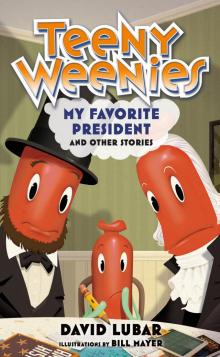 Teeny Weenies: My Favorite President
Teeny Weenies: My Favorite President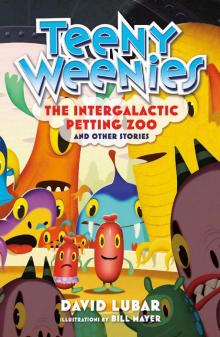 Teeny Weenies: The Intergalactic Petting Zoo
Teeny Weenies: The Intergalactic Petting Zoo Teeny Weenies: The Eighth Octopus
Teeny Weenies: The Eighth Octopus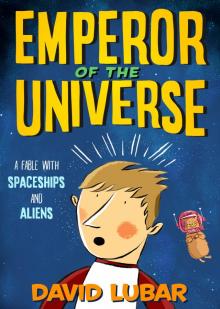 Emperor of the Universe
Emperor of the Universe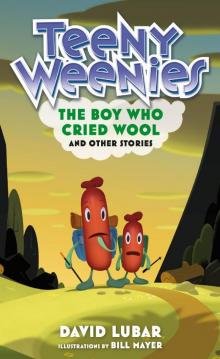 Teeny Weenies: The Boy Who Cried Wool
Teeny Weenies: The Boy Who Cried Wool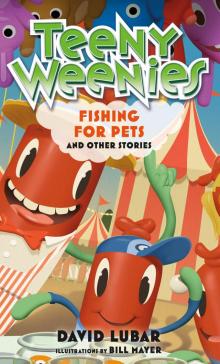 Teeny Weenies: Fishing for Pets
Teeny Weenies: Fishing for Pets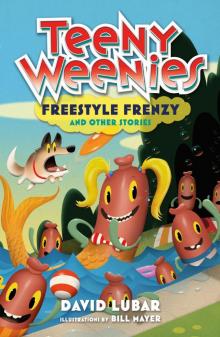 Teeny Weenies: Freestyle Frenzy
Teeny Weenies: Freestyle Frenzy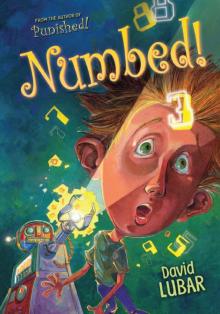 Numbed!
Numbed!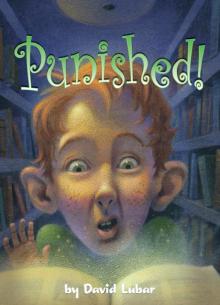 Punished!
Punished!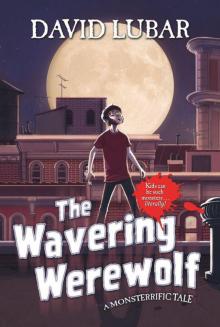 The Wavering Werewolf: A Monsterrific Tale (Monsterrific Tales)
The Wavering Werewolf: A Monsterrific Tale (Monsterrific Tales)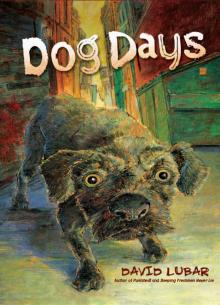 Dog Days
Dog Days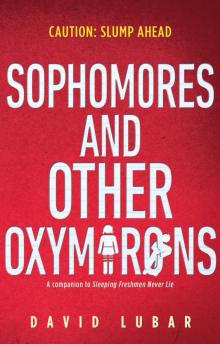 Sophomores and Other Oxymorons
Sophomores and Other Oxymorons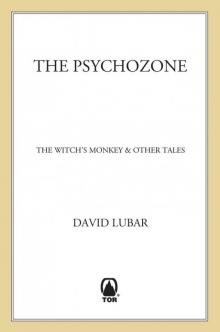 The Psychozone
The Psychozone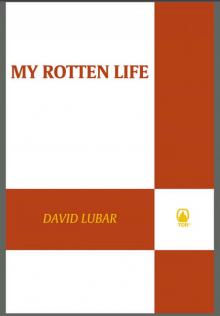 My Rotten Life
My Rotten Life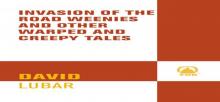 Invasion of the Road Weenies
Invasion of the Road Weenies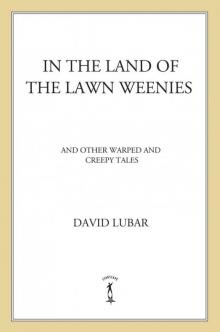 In the Land of the Lawn Weenies
In the Land of the Lawn Weenies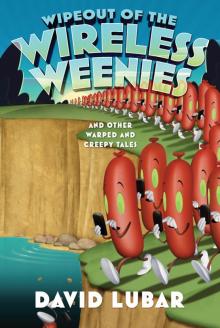 Wipeout of the Wireless Weenies
Wipeout of the Wireless Weenies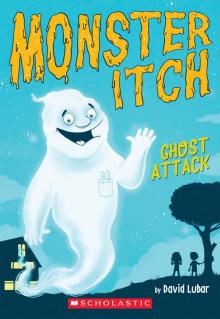 Ghost Attack
Ghost Attack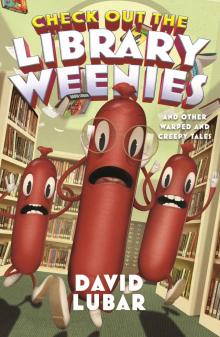 Check Out the Library Weenies
Check Out the Library Weenies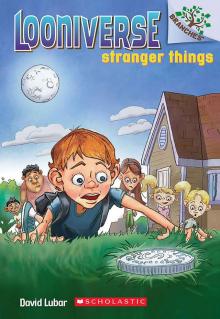 Looniverse #1: Stranger Things (A Branches Book)
Looniverse #1: Stranger Things (A Branches Book)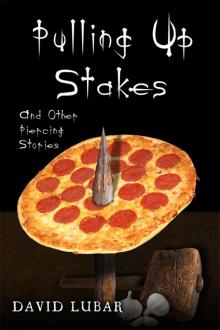 Pulling up Stakes and Other Piercing Stories
Pulling up Stakes and Other Piercing Stories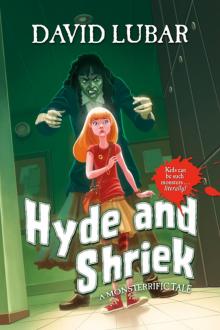 Hyde and Shriek
Hyde and Shriek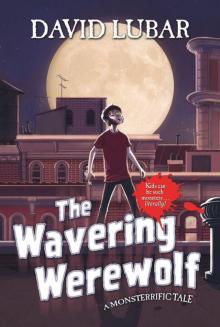 The Wavering Werewolf
The Wavering Werewolf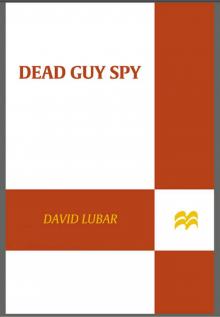 Dead Guy Spy
Dead Guy Spy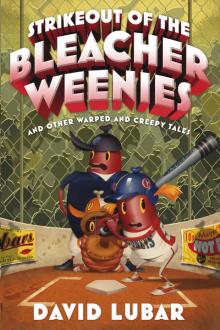 Strikeout of the Bleacher Weenies
Strikeout of the Bleacher Weenies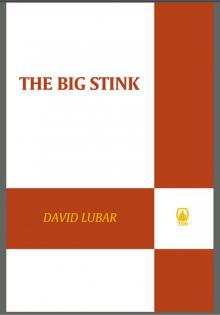 The Big Stink
The Big Stink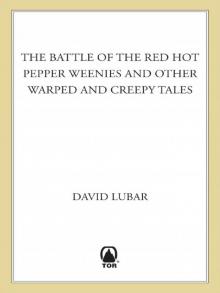 The Battle of the Red Hot Pepper Weenies
The Battle of the Red Hot Pepper Weenies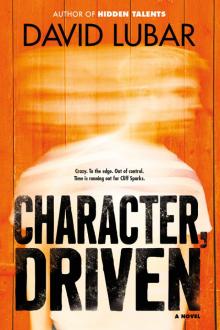 Character, Driven
Character, Driven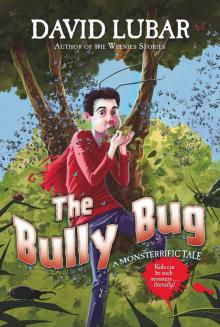 The Bully Bug
The Bully Bug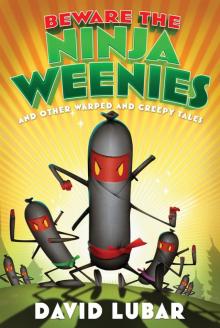 Beware the Ninja Weenies
Beware the Ninja Weenies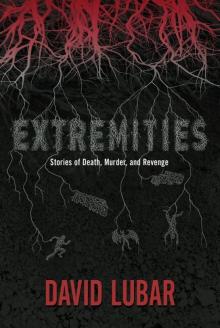 Extremities: Stories of Death, Murder, and Revenge
Extremities: Stories of Death, Murder, and Revenge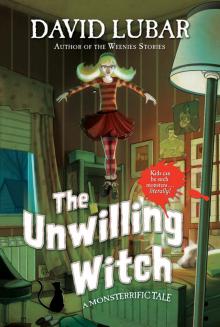 The Unwilling Witch
The Unwilling Witch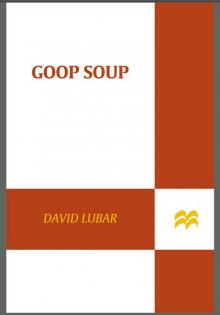 Goop Soup
Goop Soup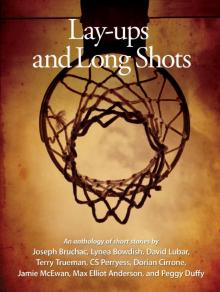 Lay-ups and Long Shots
Lay-ups and Long Shots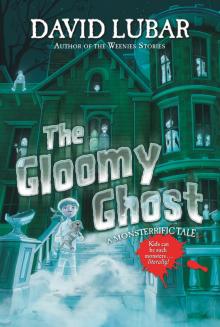 The Gloomy Ghost
The Gloomy Ghost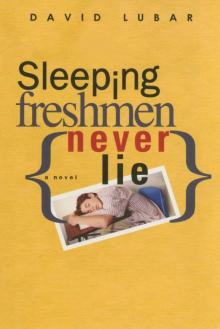 Sleeping Freshmen Never Lie
Sleeping Freshmen Never Lie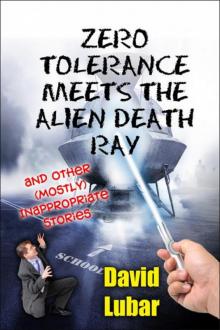 Zero Tolerance Meets the Alien Death Ray and Other (Mostly) Inappropriate Stories
Zero Tolerance Meets the Alien Death Ray and Other (Mostly) Inappropriate Stories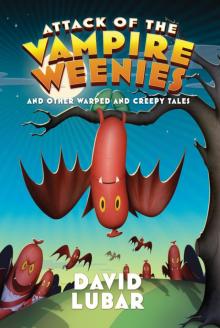 Attack of the Vampire Weenies
Attack of the Vampire Weenies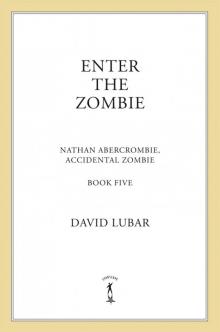 Enter the Zombie
Enter the Zombie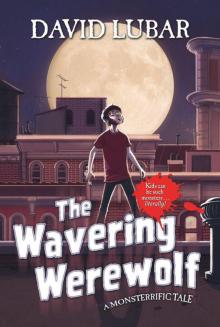 The Wavering Werewolf_A Monsterrific Tale
The Wavering Werewolf_A Monsterrific Tale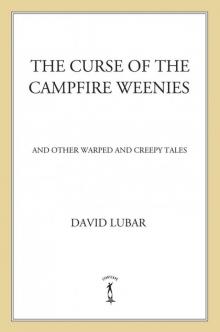 The Curse of the Campfire Weenies
The Curse of the Campfire Weenies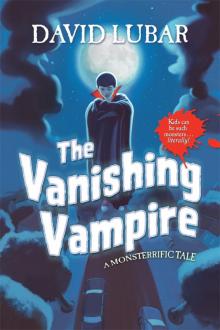 The Vanishing Vampire
The Vanishing Vampire